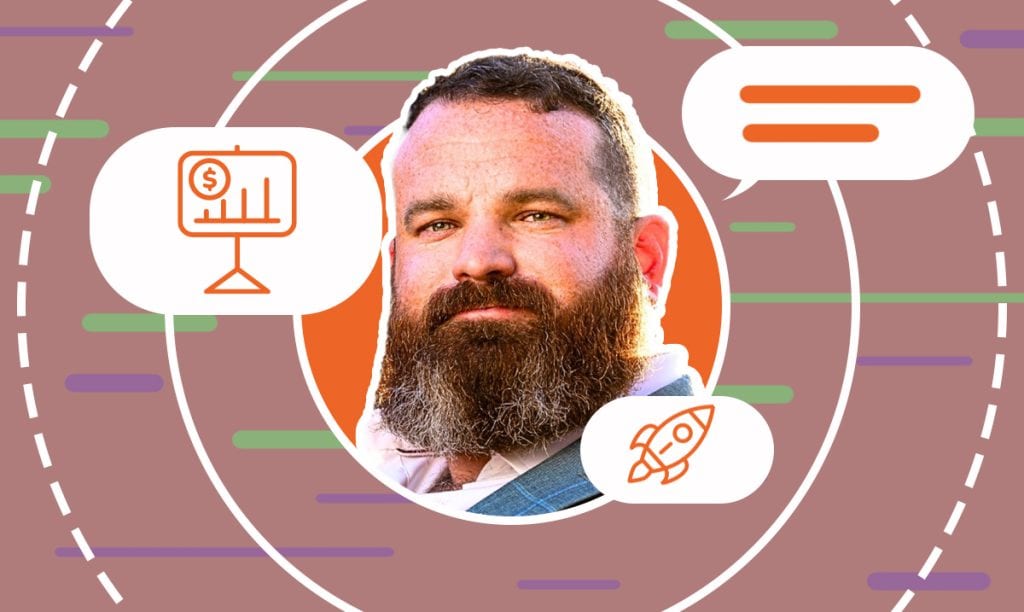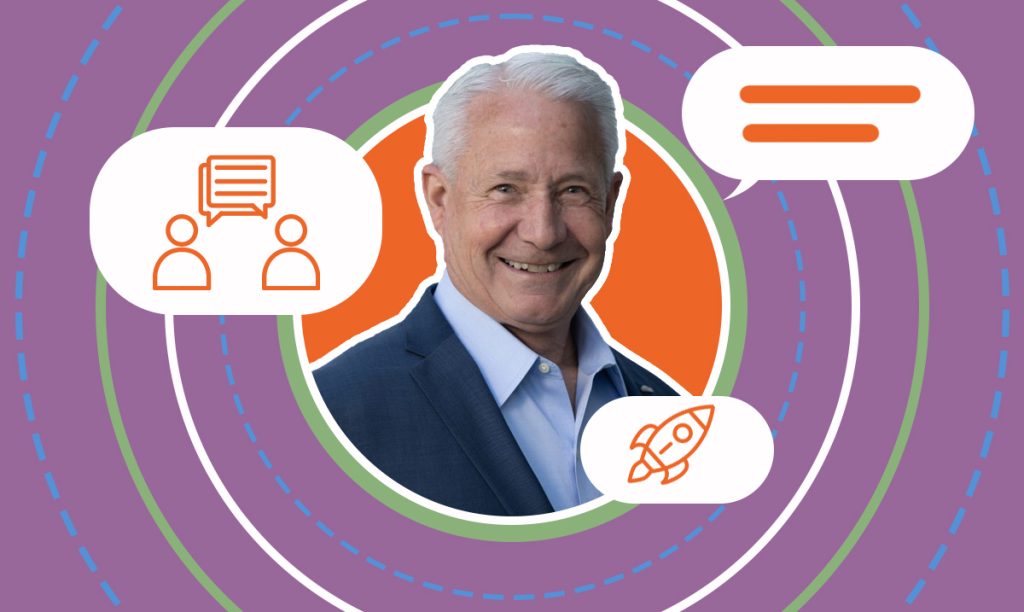In this interview, David Pere, the founder of From Military to Millionaire, shares his inspiring journey from the Marine Corps to financial freedomt ...
The Financial Blueprint for Online Business Success by Alan Chen
Written by: Mark Stewart
Mark Stewart is the in-house Certified Public Accountant, an accomplished author and financial media specialist.
Published on December 26, 2023

In this interview with Alan Chen, the CEO of FreeCashFlow.io, a leading agency specializing in e-commerce and online business accounting and bookkeeping, we delve into the mind of a visionary entrepreneur. With a background at Ernst & Young and Riot Games, Chen brings a unique perspective to the finance world, now channeled into empowering online entrepreneurs to optimize their financial health.
FreeCashFlow.io, based in Los Angeles, California, stands out for its dedication to online businesses, offering services that range from tax minimization to comprehensive bookkeeping solutions. Chen’s journey from a traditional finance career to founding a company that helps online businesses save significant amounts in taxes and manage their financial operations efficiently is a testament to his entrepreneurial spirit and financial acumen.
Early Career Choices
SBS – Can you describe how your experiences at Ernst & Young and Riot Games influenced your approach to entrepreneurship and finance?
Alan – My time at Ernst & Young and Riot Games was invaluable. At E&Y, I learned the rigor and precision of accounting, which is fundamental in finance. Riot Games, being at the forefront of gaming and digital entertainment, taught me about the dynamic nature of digital economies. These experiences shaped my approach to entrepreneurship by emphasizing the importance of adaptability, precision, and innovation in finance.
Transition to Entrepreneurship
SBS – What motivated you to transition from a traditional career in accounting and finance to starting FreeCashFlow.io?
Alan – The decision to start FreeCashFlow.io stemmed from a desire to blend my traditional finance expertise with the evolving needs of digital entrepreneurs. I saw a gap in the market where e-commerce, SaaS, and online content creators needed specialized financial guidance to navigate their unique challenges.
Challenges in Entrepreneurship
SBS – What were some of the biggest challenges you faced in the early days of FreeCashFlow.io, and how did you overcome them?
Alan – In the early days, the biggest challenges were building a client base and adapting our services to the varied needs of digital businesses.
There was a big trend of multiple online business industries coming at the same time, and we managed to talk to and position ourselves according to their needs when they started to need accounting and bookkeeping services.
For example, there was a big e-commerce and Amazon boom, and we had to talk, listen, and learn about the pain points of these people.
Then, there was a rise of digital content creators, from YouTubers to online subscription creators to streamers. Their problems were different from the rest.
For every type of “new customer type” that we had acquired, we had to really understand the pain points that they were experiencing and develop a service that would serve their needs.
We overcame these by focusing on personalized service and staying abreast of industry trends, ensuring our solutions were both relevant and innovative.
Financial Strategies for Startups
SBS – What are the key financial strategies that new entrepreneurs should focus on to ensure the sustainability of their business?
Alan – For new entrepreneurs, it’s crucial to maintain a lean operation, prioritize cash flow management, and invest in areas that directly contribute to growth. Understanding your financial metrics and having a scalable financial model is key.
A key issue that you have to understand and watch out for is your:
- Gross margin overtime
- Net margins
- Cash flow
For example, a lot of e-commerce brands need to buy inventory in order to make that revenue, so understanding cash flow, a financial concept, is something most entrepreneurs do not fundamentally understand because they are not finance-trained.
A company can be profitable and growing month over month but still have negative cash flow.
Cash Flow Management
SBS – How important is cash flow management for a startup, and what are some common mistakes entrepreneurs make in this area?
Alan – Cash flow is the lifeblood of any startup. Common mistakes include not monitoring cash flow regularly, underestimating operating costs, and overestimating sales forecasts. Effective cash flow management involves meticulous planning and realistic budgeting.
Lots of companies, especially those selling physical products, need to watch out for cash flow management because of the risk of bankruptcy.
You need to pay employees, pay for marketing, pay for inventory, product costs, taxes, and so on.
And this is usually not factored in when entrepreneurs look at their numbers because they only look at the topline revenue number or the “sales number.”
You only go bankrupt if you run out of cash.
You need to understand your accounts payable, how long it takes for your customers to pay cash, and so on and so forth.
This stuff takes time, and you should talk to an experienced CPA to understand your issue, as every company’s financial statement is different.
Scaling a Business
SBS – What advice would you give to entrepreneurs looking to scale their business without compromising financial health?
Alan – Scaling requires a balance between growth and stability. My advice is to scale operations only when you have a sustainable, repeatable business model. Avoid over-leveraging and focus on building a solid customer base and internal processes.
You should consider scaling and planning to scale when you have managed to crack acquisition or your front end, meaning that you have a predictable way of acquiring customers or revenue. This is for a typical business like a physical product or SaaS business.
If you run something like a content business, technically, as long as you have consistent revenue coming in from your AdSense or advertising brand deals, you can consider scaling up as long as you are comfortable with your cash position.
Tax Planning for Entrepreneurs
SBS – Can you share some effective tax planning strategies for new business owners?
Alan – Effective tax planning involves understanding the nuances of tax laws, leveraging deductions, and planning for tax liabilities. It’s important to stay informed about tax changes and seek professional advice to optimize tax strategies.
The biggest thing that people have to learn is that the tax laws are made to incentivize you to reinvest in your business. For example, if at the end of the year, you had before-tax profits, you could invest in buying new equipment, laptops, inventory, and software for your team. Or you could give out bonuses to your team, or you could invest more into marketing and sales to grow topline more.
These activities are considered using tax deductions, activities that will actually reduce your pre-tax profit so that you pay less tax at the end of the fiscal year.
For example, we helped one of our clients pay $22,000 LESS in taxes simply by helping her do tax planning over the year. This particular client of ours used a lot of B2B marketing software, so instead of paying monthly, we advised her to bundle up her software expenses so that she could recognize the expense in the current year, which would reduce her taxes. Moreover, we helped her set up her retirement account, which not only set her up for the future but drastically reduced her taxable income for the year. The little things add up when it comes to tax planning. Otherwise, you will be giving free money away to the IRS!
Another example of how we help our clients save on tax would be when we help them with sales tax compliance. Every US-based entity that sells physical products has to pay sales tax in the states that they sell to, usually when they hit $100k in revenue in that state. We managed to save the client over $6,000+ in vendor rebates when she had over 30+ sales tax state filings she had to do. Another prime example of when you deeply understand the tax laws in a certain niche is how helpful that is when you have a tax accountant in your corner making sure you keep all your hard-earned money in your pockets!
If you are interested in learning how we can help your business save on your taxes, feel free to reach out to us!
Tax planning is probably the highest ROI, the most profitable activity that you can do as an entrepreneur because you have already made that revenue.
All you are doing is making sure that you can keep it and pay less in taxes!
I wrote quite a few tax guides on certain subjects and niches, for example:
Youtubers and online content creators tax guide:
https://freecashflow.io/blog/do-youtubers-need-to-pay-tax-a-complete-guide/
E-commerce sales tax guide:
https://freecashflow.io/blog/sales-tax-guide-for-your-ecommerce-store/
Self-employment tax:
https://freecashflow.io/blog/a-guide-to-paying-self-employment-tax/
Of course, when you actually clear six figures in your business, we highly recommend you to actually speak to a licensed CPA so that you get real advice that is relevant to you.
We highly recommend you NOT to get cookie cutter advice on the Internet if you are already doing more than figures annually in revenue.
Being safe, protecting yourself, and being compliant is very important because dealing with tax authorities is no fun.
Technology in Finance
SBS – How has technology changed the landscape of finance for online businesses, and what tools do you recommend?
Alan – Technology has revolutionized finance, especially for online businesses. Automation tools for accounting, cloud-based financial management systems, and data analytics platforms are essential. I recommend tools that offer integration, scalability, and real-time financial insights.
Quickbooks, XERO, and other accounting softwares nowadays are so advanced that you can have your entire financial statements in the pocket of your hand.
You can see the historical numbers of your business, pull up every single line item, and have your banking and finance accounts all synced up into the same platform.
This may be very convenient; however, at the end of the day, these are all tools. If you do not have the financial knowledge and know how to read the data and know what the data means, all the tech in the world is completely useless.
Learning from Failures
SBS – Can you share a personal experience where you faced failure and how it helped you grow as a business leader?
Alan – A significant learning moment was underestimating how to really train a competent team.
As a CPA with multiple years of experience, it was easy for me to do the work. However, delegation of tasks is assuming that people are already aware of what you know, which is rarely the case.
For the first few months when we started hiring, we had made some mistakes and the team really had to be trained with strong SOPs.
Once they get the hang of things, our operations and fulfillment really smooth out.
Advice to Young Entrepreneurs
SBS – What advice would you give to young entrepreneurs who are just starting out?
Alan – Stay adaptable, continually learn, and don’t fear failure. Embrace challenges as learning opportunities and seek mentorship. Remember, entrepreneurship is a marathon, not a sprint.
Future of E-commerce
SBS – Based on your experience, what do you think the future holds for e-commerce businesses, and how should entrepreneurs prepare?
Alan – E-commerce will continue to grow and evolve with increased personalization and integration of AI. Entrepreneurs should focus on understanding their customers deeply and leveraging technology to enhance user experience.
The industry is still growing very quickly, and there will be more people who are used to buying online than before. So there is no shortage of opportunities.
We have many clients in different industries and niches selling all sorts of things.
For example, supplement ecommerce business, people selling music albums, people selling pillowcases, and pulling in eight figures a year.
It’s crazy stuff — but because of the scale, it’s entirely possible!
Work-Life Balance
SBS – How do you manage work-life balance as the CEO of a growing company?
Alan – Balancing work and personal life is challenging but essential. I prioritize by setting clear boundaries, delegating tasks, and ensuring time for self-care and family. It’s about quality, not just quantity, in both work and personal life.
I have two daughters now and totally understand the balance between having time for family is very delicate.
Happy wife, happy life. Make sure you have clear boundaries, and you are set!
Vision for FreeCashFlow.io
SBS – What is your vision for the future of FreeCashFlow.io, and how do you plan to achieve it?
Alan – My vision for FreeCashFlow.io is to become the go-to financial advisory service for digital entrepreneurs in the US.
We currently only serve customers who have a US LLC or entity here and sometimes consult on customers who sell to the US but live abroad.
We plan to achieve this by continuously innovating our services, expanding our expertise in international finance, and maintaining our commitment to personalized support for our clients.
Subscribe to Our Newsletter
and gain insider access to cutting-edge business insights and trends.
Featured Resources

How David Pere Helps Veterans Achieve Financial Freedom
Published on April 3, 2025
Read Now

Empowering Entrepreneurs with a Consultative Banking Model
Published on January 23, 2025
When it comes to business banking, a one-size-fits-all approach doesn’t cut it — just ask Endeavor Bank. Since its founding in 2017, EndeavorBan ...
Read Now

How Click A Tree Makes Sustainability Simple for Businesses
Published on January 20, 2025
In this interview, Chris Kaiser, the founder and CEO of Click A Tree, shares his journey of creating a company dedicated to making sustainabilityacc ...
Read Now
Comments